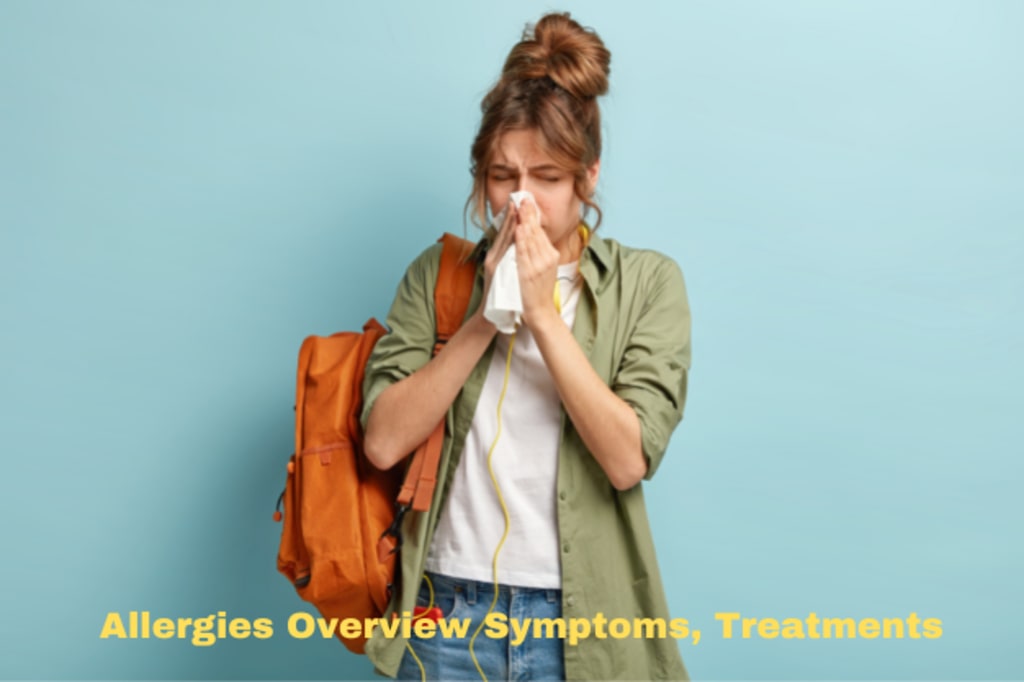Allergies | Symptoms, Types of Allergies, Treatments - Fine Health Tipes
Allergies

Pollution, dust, and cold winds can lead to lung problems for many people. The same may be said for dry air or sudden changes in temperature, which can irritate the mucous membranes and make asthma even worse. Some seasons also cause allergies; for example, spring aggravates pollen allergies in many areas. Click here to Read Also...
Poor water and sanitation conditions also lead to respiratory and skin allergies.
Definition of Allergy
Our immune system protects us from infections and disease-causing bacteria and viruses. If our immune system hasn't been properly trained, a stronger response reaction is triggered whenever this substance, which is usually harmless to most people, is encountered. This strong response reaction would be called an allergy.
Knowing that allergies are a byproduct of having a weak immune system is well worth the effort.
Types of Allergies
One type of allergy is a respiratory problem, while the other is caused by being exposed touch certain substances. Respiratory allergies, also known as pollen allergies, are caused by wild mulberries in Islamabad. There are also common causes for agricultural-based allergies, like crops and animal sprays. Skin allergies can cause itchy skin and gradual redness of the skin. If left untreated for too long, it can lead to hardened skin like leather or eczema-related symptoms.
Here are some explanations for why allergies occur.
Eating or putting something on your body that your body does not accept, can cause an allergy. This means your body will feel itchy and uncomfortable.
People also suffer from allergies by eating various items such as peanuts, walnuts, almonds, cashews, eggs, cow's milk, and certain fish. Apart from this, complaints of allergic reactions to insect bites, medicines, and chemicals are also common.
The difference between an allergy and a cold is a topic many people discuss.
The main difference between allergies and the common cold is that the nose is blocked in allergies but not during a cold. Additionally, inflammation can be felt with an allergy but not during a cold. Lastly, water comes out of the eyes and nose in allergies while thick fluid is released in a cold. Read Also...
What causes food allergies to develop?
Some people suffer from severe food allergies. Many psychologists say that the best way to prevent these allergies is by exposing infants to peanuts and other common allergens early in life. In a study conducted by King's College London, 1300 three-year-old children were tested for peanut allergies. It was found that 2.5% had developed a peanut allergy.
That number is especially high in Australia, due to the country's climate; nine percent of infants under one year are allergic to eggs and peanuts in Australia. Medical scientists say that young children should eat nuts so they can start building immunity against possible allergens from an early age and develop their eating habits around nuts from a young age as well.
A lab study conducted at King's College London found that five-year-old children who started eating nuts during their first year had an 80% reduction in their peanut allergy risk with each passing year. Some people are allergic to eggs, fruit, vegetables, beef, lamb or pork, chicken or turkey meat...this may differ for different people based on what they're allergic to. Once you know what you're allergic to, it's best not to consume it as it could make your food allergies worse.
Symptoms
Allergies can vary greatly depending on the person. Changes in weather and lifestyle can have a large impact on the nature and severity of allergies. Whether it is an airborne or food allergy, common symptoms include difficulty breathing, redness or itching of the eyes, swollen eyes, coughing, going into shock or shock, wheezing, runny nose, and red skin.
Click here to Read More..
About the Creator
Technogibran
www.technogibran.com is a blog about technology and the Health.






Comments
There are no comments for this story
Be the first to respond and start the conversation.